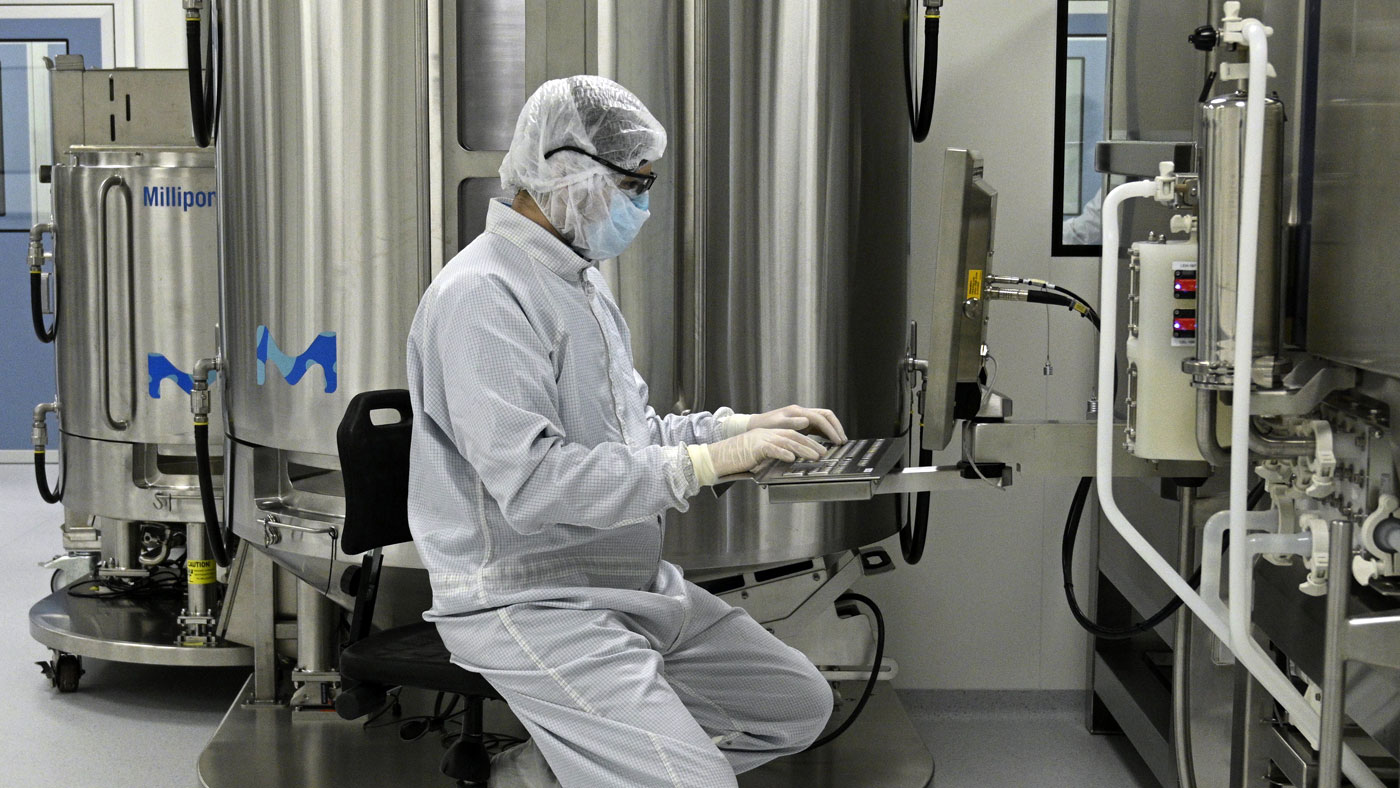England and Germany ‘neck-and-neck’ in coronavirus vaccine race
Teams at Oxford University and BioNTech are competing to produce the first internationally accepted vaccination for Covid-19

A free daily email with the biggest news stories of the day – and the best features from TheWeek.com
You are now subscribed
Your newsletter sign-up was successful
The life-and-death sprint to find a drug that can protect us all from Covid-19 is a contest in which there ought to be no losers.
Yet the unprecedented efforts of the world’s scientists and drug companies to create a coronavirus vaccine have culminated in a familiar rivalry, says The Telegraph - “a playoff between teams in England and Germany”.
The first internationally licensed vaccine is expected to emerge either from Oxford University, in partnership with the Anglo-Swedish pharmaceutical company Astra-Zeneca, or from Germany’s BioNTech and its US-based manufacturing partner Pfizer.
The Week
Escape your echo chamber. Get the facts behind the news, plus analysis from multiple perspectives.

Sign up for The Week's Free Newsletters
From our morning news briefing to a weekly Good News Newsletter, get the best of The Week delivered directly to your inbox.
From our morning news briefing to a weekly Good News Newsletter, get the best of The Week delivered directly to your inbox.
“Both products have completed successful phase one and two trials, with data suggesting they produced a ‘robust’ immune response - antibodies and T-cells - in volunteers after two doses,” the newspaper reports.
Scores of other potential vaccines are also under development, and in an unconventional move, two have been approved for use in their home countries before undergoing large-scale phase three trials.
Russia is planning to start mass vaccinations in October using a drug created by the Moscow-based Gameleya laboratory, while China will give soldiers a vaccine developed by medical lab CanSino and military researchers.
However, neither the Russian nor Chinese vaccine is likely to gain international acceptance without phase-three clinical trial results to reassure public health officials.
A free daily email with the biggest news stories of the day – and the best features from TheWeek.com
“Russia has released no scientific data as to the safety and effectiveness of its vaccine,” says CNBC.
By contrast, phase three trials of both the BioNTech and Oxford vaccines are well under way, and data from earlier testing has already been published.
“AstraZeneca has indicated they might be able to start delivering emergency vaccines as early as October, depending on the outcome of the studies,” says The New York Times. “Their phase one/two trial revealed that the vaccine was safe, causing no severe side effects.”
Although the German vaccine caused some “moderate side effects such as sleep disturbances and sore arms”, the paper adds, the drug also produced an effective immune response.
Both vaccines are likely to require two doses, according to The Telegraph, and “how long any protective effect will last” remains “unclear”.
Holden Frith is The Week’s digital director. He also makes regular appearances on “The Week Unwrapped”, speaking about subjects as diverse as vaccine development and bionic bomb-sniffing locusts. He joined The Week in 2013, spending five years editing the magazine’s website. Before that, he was deputy digital editor at The Sunday Times. He has also been TheTimes.co.uk’s technology editor and the launch editor of Wired magazine’s UK website. Holden has worked in journalism for nearly two decades, having started his professional career while completing an English literature degree at Cambridge University. He followed that with a master’s degree in journalism from Northwestern University in Chicago. A keen photographer, he also writes travel features whenever he gets the chance.
-
 Political cartoons for February 16
Political cartoons for February 16Cartoons Monday’s political cartoons include President's Day, a valentine from the Epstein files, and more
-
 Regent Hong Kong: a tranquil haven with a prime waterfront spot
Regent Hong Kong: a tranquil haven with a prime waterfront spotThe Week Recommends The trendy hotel recently underwent an extensive two-year revamp
-
 The problem with diagnosing profound autism
The problem with diagnosing profound autismThe Explainer Experts are reconsidering the idea of autism as a spectrum, which could impact diagnoses and policy making for the condition
-
 A Nipah virus outbreak in India has brought back Covid-era surveillance
A Nipah virus outbreak in India has brought back Covid-era surveillanceUnder the radar The disease can spread through animals and humans
-
 Trump HHS slashes advised child vaccinations
Trump HHS slashes advised child vaccinationsSpeed Read In a widely condemned move, the CDC will now recommend that children get vaccinated against 11 communicable diseases, not 17
-
 A fentanyl vaccine may be on the horizon
A fentanyl vaccine may be on the horizonUnder the radar Taking a serious jab at the opioid epidemic
-
 Health: Will Kennedy dismantle U.S. immunization policy?
Health: Will Kennedy dismantle U.S. immunization policy?Feature ‘America’s vaccine playbook is being rewritten by people who don’t believe in them’
-
 How dangerous is the ‘K’ strain super-flu?
How dangerous is the ‘K’ strain super-flu?The Explainer Surge in cases of new variant H3N2 flu in UK and around the world
-
 Vaccine critic quietly named CDC’s No. 2 official
Vaccine critic quietly named CDC’s No. 2 officialSpeed Read Dr. Ralph Abraham joins another prominent vaccine critic, HHS Secretary Robert F. Kennedy Jr.
-
 This flu season could be worse than usual
This flu season could be worse than usualIn the spotlight A new subvariant is infecting several countries
-
 Covid-19 mRNA vaccines could help fight cancer
Covid-19 mRNA vaccines could help fight cancerUnder the radar They boost the immune system